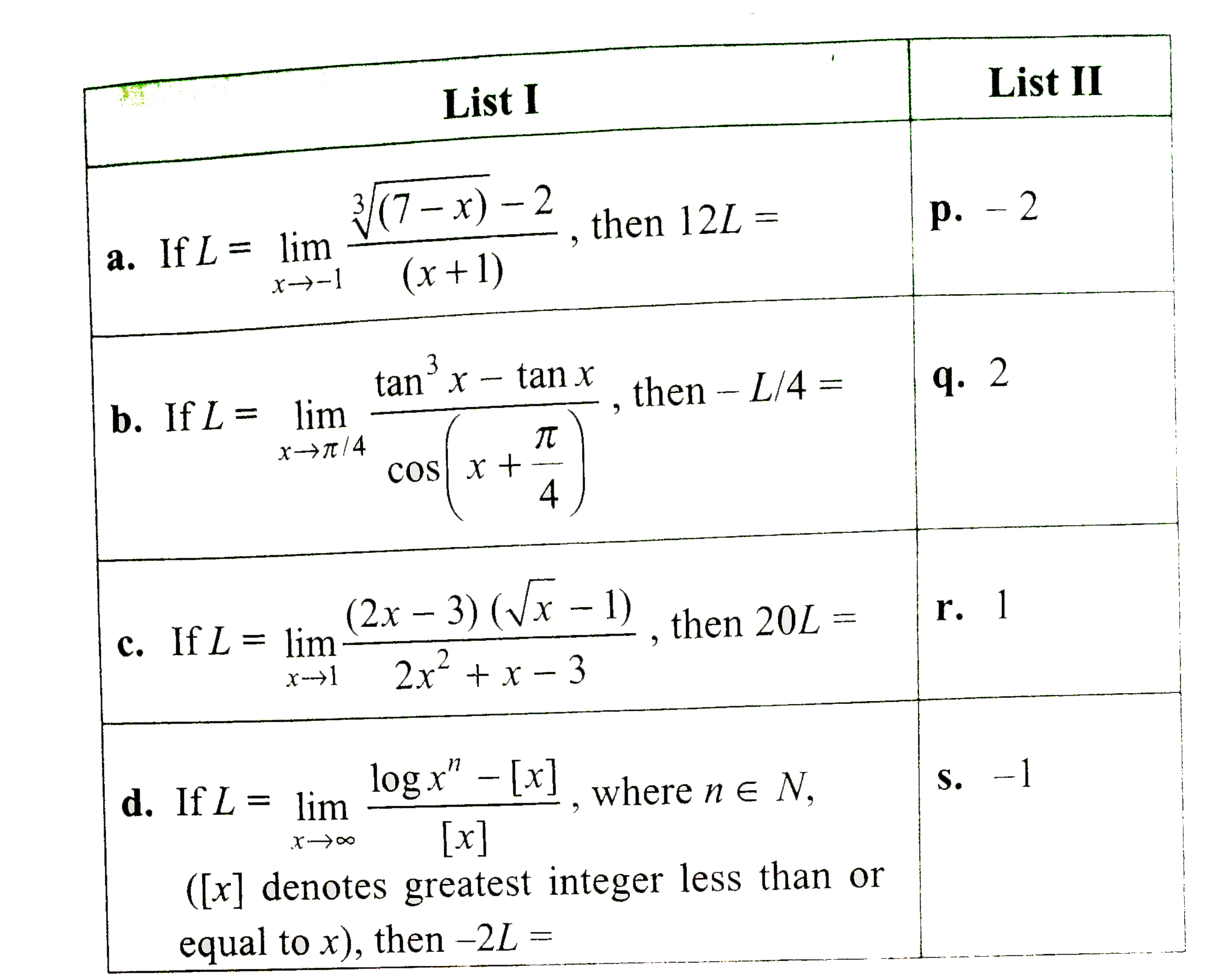If f(x)=limn→∞n(x1/n−1), then for x>0,y>0,f(xy) is equal to Solution in Bengali
f(x)f(y)
f(x) + f(y)
f(x) - f(y)
none of these
The correct Answer is:B
f(x)=limn→∞n(x1/n−1)
=limn→∞x1/n−11/n
=limm→∞xm−1m (where 1n is replaced by m)
ln x
or f(xy)=ln (xy)=ln x+ln y=f(x)+f(y)
Topper's Solved these Questions
- LIMITSBOOK - CENGAGE PUBLICATIONCHAPTER - LIMITSEXERCISE - Linked Comprehension Type
20 Videos
- LIMITSBOOK - CENGAGE PUBLICATIONCHAPTER - LIMITSEXERCISE - Matrix Match Type
5 Videos
- LIMITSBOOK - CENGAGE PUBLICATIONCHAPTER - LIMITSEXERCISE - EXERCISE 2.8
8 Videos
- JEE 2019BOOK - CENGAGE PUBLICATIONCHAPTER - JEE 2019EXERCISE - Chapter 10
8 Videos
- LINEAR COMBINATION OF VECTORS, DEPENDENT AND INDEPENDENT VECTORSBOOK - CENGAGE PUBLICATIONCHAPTER - LINEAR COMBINATION OF VECTORS, DEPENDENT AND INDEPENDENT VECTORSEXERCISE - DPP 1.2
10 Videos
Similar Questions
Letf(x)=sin−1(1−{x})×cos−1(1−{x})√2{x}×(1−{x}), where {x} denotes the fractional part of x.
L=limx→0−f(x) is equal to
View SolutionMatch the following lists:

View SolutionEvaluate limx→1cosπ2x1−√x
View SolutionIf y = y(x) is the solution of the differential equation, xdydx+2y=x2 satisfying y(1) = 1, then y(12) is equal to
View SolutionThe number of integral values of p for which (p+1)ˆi−3ˆj+pˆk,pˆi+(p+1)ˆj−3ˆk and −3ˆi+pˆj+(p+1)ˆk are linearly dependent vectors is q
View SolutionIf f(x)=limn→∞n(x1n−1),thenforx>0,y>0,f(xy) is equal to : f(x)f(y) (b) f(x)+f(y) f(x)−f(y) (d) none of these
View SolutionIf f(x)=lim_(n rarr oo)n(x^((1)/(n))-1) then for x>0,y>0,f(xy) is equal to
View Solutionlimn→∞n2(x1/n−x1/(n+1)),x>0, is equal to
View SolutionLet A=[1xn−xn1],then limn→∞An is
View Solutionlimn→∞(n!)1/nn equals
View Solutionlimn→∞(sinn1+cosn1)n is equal to
View SolutionLet f(x)=(1+1x)x(x>0) and g(x)[xIn(1+(1/x)),if0<x≤1 0,ifx=0
limn→∞{f(1n).f(2n).f(3n)...f(nn)}1/nequals
View SolutionLet for all x>0,f(x)=limn→∞n(x1n−1), then
View SolutionLet f(x)=limn→∞1−xn1+xn. Then
View SolutionIf f(x) = limn→∞n2(x1/n−x1/(n+1)),x>0 then ∫xf(x) dx is equal to
View SolutionIf f(n)=limx→0{(1+sinx2)(1+sinx22)...(1+sinx2n)}1x then find limn→∞f(n).
View Solution
